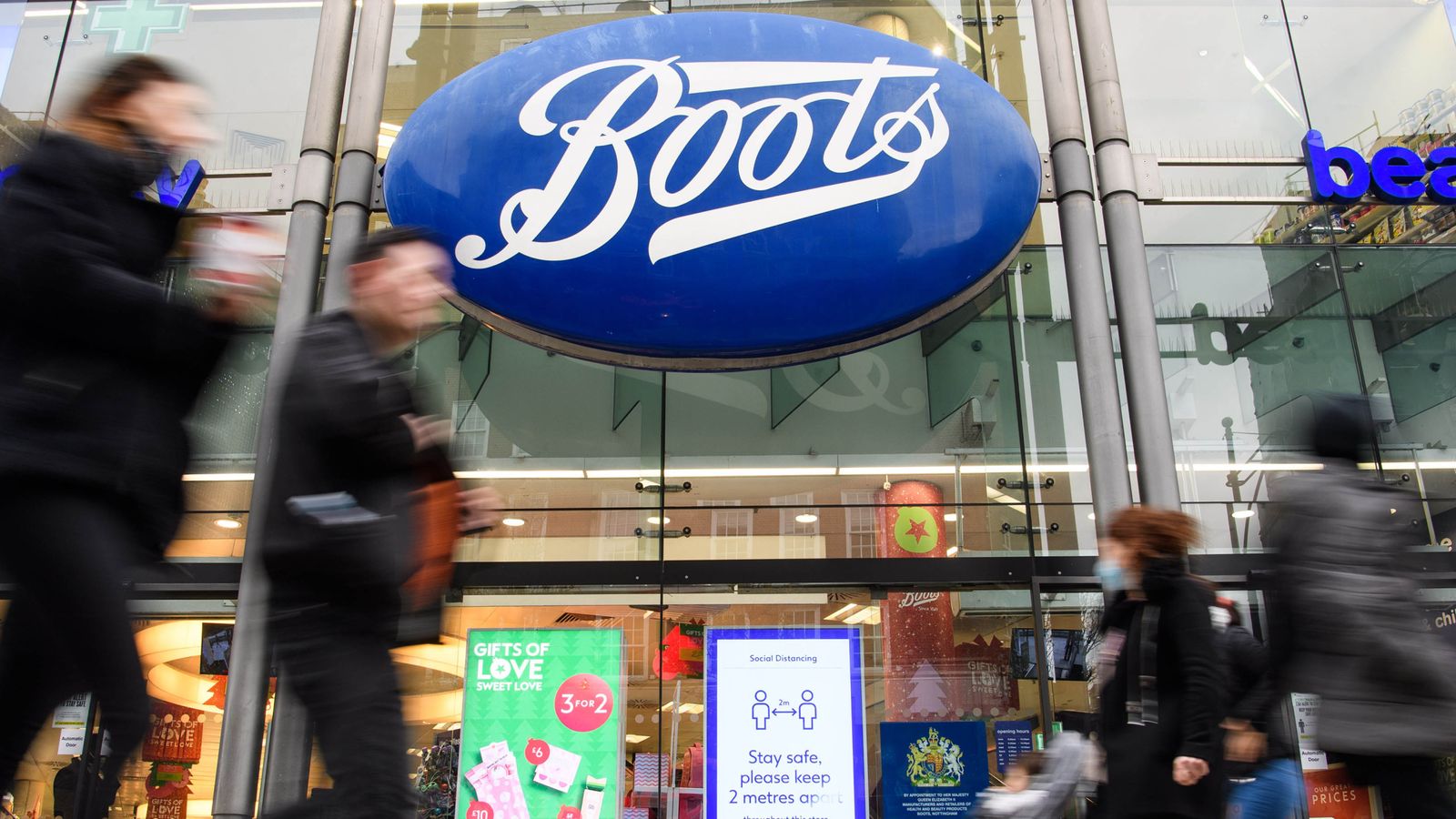Two of the world’s biggest buyout firms have joined forces to pursue a multibillion pound takeover of Boots, Britain’s largest high street chain of chemists.
Sky News has learnt that Bain Capital and CVC Capital Partners are assembling a joint bid for the retail behemoth, which trades from more than 2000 stores and employs over 50,000 people.
Retail insiders said that Bain and CVC were being advised by bankers at Lazard on their interest in Boots.
Their partnership is intriguing because of the key role that will be played by Dominic Murphy, one of CVC’s team of managing partners and an architect of the £11bn takeover of Alliance Boots by KKR, the private equity firm he previously worked for, in 2007.
Mr Murphy, who remains a director of Walgreens Boots Alliance (WBA), Boots’ US-listed parent company, is expected to need to recuse himself from boardroom discussions about the potential sale of Boots as a result of his interest in the process at CVC.
Sources said Bain and CVC were working on a plan to acquire Boots that was predicated upon substantial investment in its digital, beauty and healthcare services offerings.
A number of other private equity firms are expected to examine offers for the chain as part of a process to be run by Goldman Sachs.
COVID-19: Heathrow demands all testing is dropped after 600,000 passengers cancelled Christmas flights
Retail and restaurants held back as Omicron dampened appetite for Christmas shopping and parties
Lidl claims to be fastest-growing bricks and mortar retailer after Christmas sales growth
However, Mr Murphy’s extensive knowledge of the Boots business and Bain’s lengthy planning for a bid are expected to leave their joint offer well-placed to succeed.
Both firms have invested heavily in prominent British businesses ranging from Formula One to Worldpay, while Bain has also recently backed Maesa, a French beauty manufacturer.
WBA announced strong trading figures at Boots last week, although the company made no formal comment on its decision to explore a sale.
It remains conceivable that no transaction involving the 172-year old British health and beauty retailer takes place, although a disposal by WBA is viewed as increasingly likely because of its renewed focus on its home US market.
Spinning the chain off into a separately listed company is also a possibility, according to insiders.
A full-blown auction of Boots, which will probably get underway in the spring, will be among the most significant deals involving a high street chain for many years.
The UK arm, which is among the country’s biggest private sector employers, is run by Sebastian James, the former Dixons Carphone chief executive.
Mr James has presided over a period of renewed investment in the business following a period in which its stores were criticised for failing to modernise.
Valuing Boots is a complicated process given the changing nature of consumer behaviour and its predominantly rented store estate, with many shops tied to long leases, but analysts said that a price of between £5bn and £6bn was realistic.
For Stefano Pessina, the WBA chairman, a decision to sell Boots would mark the final chapter of his involvement with one of Britain’s best-known companies.
The Italian octogenarian engineered the merger of Boots and Alliance Unichem, a drug wholesaler, in 2006, with the buyout firm KKR acquiring the combined group in an £11bn deal the following year.
In 2012, Walgreens acquired a 45% stake in Alliance Boots, completing its buyout of the business two years later.
Mr Pessina and his partner, Ornella Barra, the group’s chief operating officer for its international businesses, have been mainstays with the company since the original Boots merger.
Like many retailers, Boots has had a turbulent pandemic, announcing 4,000 job cuts in 2020 as a consequence of a restructuring of its Nottingham head office and store management teams.
It has also been embroiled in rows with landlords about delayed rent payments.
Shortly before the pandemic, Boots earmarked about 200 of its UK stores for closure, a reflection of changing shopping habits.
The chain’s heritage dates back to John Boot opening a herbal remedies store in Nottingham in 1849.
It opened its 1000th UK store in 1933.
Bain Capital and CVC declined to comment.






















